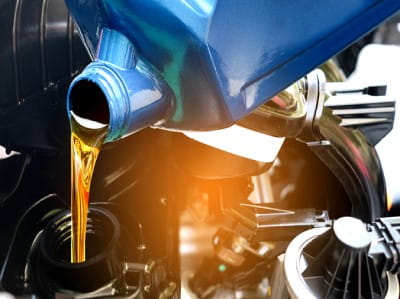John Townsend
Public Relations Manager, DC
O: (202) 481-6820 (ext. 4462108)
C: (202) 253-2171
jtownsend@aaamidatlantic.com
WASHINGTON, D. C. (Friday, July 5, 2019) –– During this dangerous heat wave, and the unusually hot and humid conditions, AAA is urging drivers, parents and caregivers to “look before you lock,” and to protect yourself and others from vehicular heat stroke, which claimed the lives of 52 children in 2018, the most in 20 years. In addition to exacting a toll on the human body, the sweltering heat wave will trigger rampant vehicle breakdowns and automotive failures. Area roadways are “hotter than Satan’s house-cat.”
Face it. You might not believe Washington, D.C. is an U.H.I. But the temperatures, heat and humidity prove it is an urban heat island, or a major “metropolitan area that’s a lot warmer than the rural areas surrounding it.” As temperatures continue to push 90 degrees across the Washington metro area, commuters and travelers need to be aware of the added stress high temperatures place on the human body and vehicles. With the heatwave expected to continue through the July 4th holiday travel period, as America jubilates, motorists are reminded to take a few precautions before hitting the road and be mindful of summer driving conditions on the way to their destinations. Many Americans will make the trek under the “Heat Dome.”
Whether they are heading across the country or across town, AAA Mid-Atlantic is advising holiday travelers and all motorists to make sure vehicles are road-ready and up-to-date on maintenance, this is particularly important as temperatures soar. Staying on top of routine vehicle maintenance is the best way to prevent roadside breakdowns. It is double trouble. Breakdowns can put drivers and their passengers at risk and in harm’s way, especially on busy Interstate highways. “Vehicular heatstroke kills a child in the United States every nine days,” warns the U.S. Department of Transportation. “Heat is the No.1 weather-related killer in the U.S., and the hottest days, particularly days over 90°F, are associated with dangerous ozone pollution levels that can trigger asthma attacks, heart attacks, and other serious health impacts,” warns Climate Central.
Heat can also kill your car and your wallet. “Better quality and technology has increased the overall lifespan of the nation’s vehicle fleet, now a record 11.8 years, and is empowering vehicle owners to keep them on the road longer,” reports AP News. However, older vehicles are four times more likely than newer vehicles to encounter a problem serious enough to require a tow to a repair facility, research by AAA reveals. If a car does end up at a repair shop, not only will a road trip be interrupted, drivers can expect to spend anywhere from several hundred to several thousand dollars to get back on the road, explains AAA Automotive.
“The average vehicle age on roadways and driveways in the Washington metro area has decreased to 9.17 years. Vehicles 10 years and older are twice as likely to end up stranded on the side of the road, as the heat rises,” said James Moore, Manager, AAA Mid-Atlantic Car Care Center. “At the first sign of a mechanical problem, motorists should try to safely move their vehicle as far to the right as possible, away from the lanes of traffic. Then stay in the vehicle and call for help immediately. When help arrives, remain in your vehicle until police or AAA’s Roadside Rescue approaches with further instructions.”
Meteorologically, a heat wave is described “as three or more days in a row with high temperatures at or above 90° Fahrenheit.” However, a “heat dome,” a weather phenomenon that traps hot air underneath its high pressure system, is a thing unto itself. It acts like “an atmospheric lid, preventing hot air from escaping.”
With 41.4 million Americans, including over one million Washingtonians, traveling by automobile for the Fourth, AAA expects to rescue nearly 367,000 motorists during the holiday weekend. In this period in 2018, AAA rescued 1,340 District drivers, 9,490 Maryland motorists, and 6,767 Virginia vehicle operators.
“The big three: dead batteries, flat tires and lockouts will be the leading reasons motorists will experience car trouble,” said Bruce Jenkins, Manager, Roadside Assistance, AAA Mid-Atlantic. “Back-ups and delays caused by things like vehicle crashes can result in drivers being stranded along highways for extended periods of time. Summer’s heat can cause dangerous conditions for those stranded without shade. Just as motorists place an emergency kit for their cars during winter, they should do the same in summer.”
AAA offers these tips to keep drivers safe and vehicles operating in the warm weeks ahead:
- Prepare before hitting the road. During the summer months, drivers should carry a minimum of five bottles of water for each person in the vehicle. Also, it’s important to have a fully charged cell phone and car charger. Drivers should also have coolant with them.
- Spare your battery. If traffic is not moving, do not use the accessory setting, listen to the radio or use any other devices that could drain the car battery.
- Avoid overheating. While running the air conditioner, drivers should keep an eye on the control panel. If the vehicle starts to overheat, shut it off immediately and open the hood to allow the engine to cool off. The vehicle may need to be off for a minimum of 45 minutes. When restarting the vehicle, leave the hood open.
- Keep air flowing. If you cannot operate the vehicle’s air conditioning, open windows on both sides of the car to cross ventilate.
- Seek shade when parked. Carry a windshield sun shade in your vehicle to provide some protection from the sun when your vehicle is parked.
- Stay safe during standstill traffic. Staying in your vehicle is usually the safest option. If, however, the heat becomes too oppressive and traffic shows no signs of moving, consider seeking shelter in the shade. If there are trees or an overpass nearby that would provide shade, take a break and give your body time to cool off, but stay safely away from traffic.
Research shows Washington, D.C. has “one of the most intense urban heat islands in the United States.” It is hot and getting hotter. It is “up to 21 degrees Fahrenheit hotter in the city [of Washington] than in nearby rural areas,” notes Climate Central. AAA recommends motorists take their vehicles to a trusted repair facility, such as a AAA Car Care Center in the mid-Atlantic region or one of the more than 7,000 AAA Approved Auto Repair facilities across North America to perform any needed maintenance before heading out on a road trip. AAA reminds drivers to take the following safety precautions on the road:
- Don't Drive Intexticated. Do not text or engage in distracting activities while driving, including interacting with a cell phone, talking with passengers or looking at other objects in the vehicle.
- Comply with the Move Over Law. Observe the Move-Over Law when law enforcement or emergency vehicles are on the side of the road. Change lanes or slow down to give sufficient clearance. This is the law in all 50 states.
- Pull out of the traffic lanes if your car breaks down. If faced with a vehicle emergency, safely steer your car off the roadway. Turn on the emergency flashers to alert other drivers and remain in the vehicle with your seatbelt on until help arrives.
Additionally, before hitting the road, motorists need to be prepared for emergencies by taking along a mobile phone and car charger, a flashlight with extra batteries, a first-aid kit, a basic toolkit, and drinking water and snacks for all passengers. Speaking of the latter, on the Fourth of July alone, America consumed “150 million hot dogs, enough to stretch between Los Angeles and Washington, D.C. more than five times.”
Follow us on Twitter: @AAADCNews
Like us on Facebook: AAA Mid-Atlantic News
Washington, D.C. Mailing Address:
1405 G Street NW
Washington, DC 20005
AAA provides automotive, travel and insurance services to 58 million members nationwide and nearly 79,000 members in the District of Columbia. AAA advocates for the safety and mobility of its members and has been committed to outstanding road service for more than 100 years. The not-for-profit, fully tax-paying member organization works on behalf of motorists, who can now map a route, find local gas prices, discover discounts, book a hotel and track their roadside assistance service with the AAA Mobile app for iPhone, iPad and Android. For more information, visit https://aaa.com
Ragina C. Ali
Public Relations Manager, MD
O: (410) 616-1900 (ext. 4361152)
C: (443) 465-5020
RAli@aaamidatlantic.com







